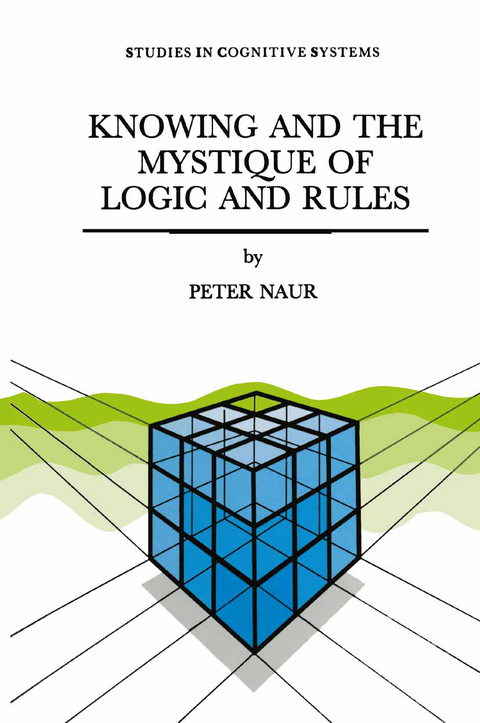
Knowing and the Mystique of Logic and Rules
Springer (Verlag)
978-90-481-4609-3 (ISBN)
analysis of computer modelling of the mental activity shows that in describing human knowing the computer is irrelevant;
Human knowing is examined as it emerges from classical empirical psychology, with its ramifications into language, computing, science, and scholarship. While the discussion takes empirical support from a wide range, claims for the significance of logic and rules are challenged throughout. Highlights of the discussion:
knowing is a matter of habits or dispositions that guide the person's stream of consciousness;
rules of language have no significance in language production and understanding, being descriptions of linguistic styles;
statements that may be true or false enter into ordinary linguistic activity, not as elements of messages, but merely as summaries of situations, with a view to action;
in computer programming the significance of logic, proof, and formalized description, is incidental and subject to the programmer's personality;
analysis of computer modelling of the mental activity shows that in describing human knowing the computer is irrelevant;
in accounting for the scholarly/scientific activity, logic and rules are impotent;
a novel theory: scholarship and science have coherent descriptions as their core.
The discussion addresses questions that are basic to advanced applications of computers and to students of language and science.
1.1. William James’s Psychology of Knowing.- 1.2. Bertrand Russell on Knowing.- 1.3. J. L. Austin on How One Knows.- 1.4. Gilbert Ryle on Knowing.- 1.5. Summary on the Psychology of Knowing.- 2.1. Rules and Regularity in Language.- 2.2. Rules and Regularity in Musical Composition.- 2.3. Language Production and Understanding.- 2.4. True Statements in Knowing and Action.- 3.1. Three Notions of Proof.- 3.2. Proof Versus Formalization.- 3.3. Personal Style in Program Description and Understanding.- 3.4. Computer Modelling of Human Knowing Activity.- 4.1. The Structure of DNA: Knowing in Biological Discovery.- 4.2. Why the Sun Shines: Coherence and Models in Scientific Description.- 4.3. Aberration in Special Relativity: A Case of Chronic Scientific Confusion.- 4.4. The Metaphysics of Constructed Models.- 4.5. Logic and Psychology of the Scientific Activity.- 4.6. Coherent Description as the Core of Scholarship and Science.- References.
| Erscheint lt. Verlag | 6.12.2010 |
|---|---|
| Reihe/Serie | Studies in Cognitive Systems ; 18 |
| Zusatzinfo | XII, 368 p. |
| Verlagsort | Dordrecht |
| Sprache | englisch |
| Maße | 152 x 223 mm |
| Themenwelt | Geisteswissenschaften ► Philosophie ► Erkenntnistheorie / Wissenschaftstheorie |
| Geisteswissenschaften ► Philosophie ► Philosophie der Neuzeit | |
| Geisteswissenschaften ► Philosophie ► Sprachphilosophie | |
| Mathematik / Informatik ► Mathematik | |
| ISBN-10 | 90-481-4609-7 / 9048146097 |
| ISBN-13 | 978-90-481-4609-3 / 9789048146093 |
| Zustand | Neuware |
| Haben Sie eine Frage zum Produkt? |
aus dem Bereich

![Was heißt Denken?. Vorlesung Wintersemester 1951/52. [Was bedeutet das alles?] - Martin Heidegger](/media/113619842)
